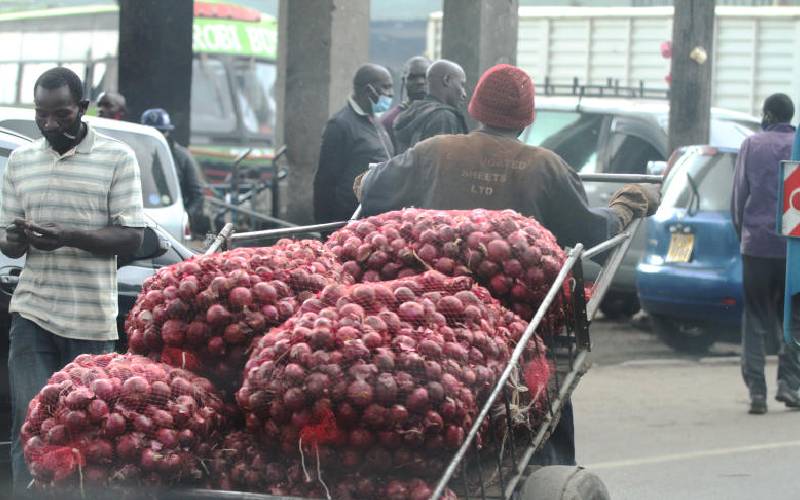×
The Standard e-Paper
Fearless, Trusted News

The smell of Wakulima Market hits you before the structure itself comes into view. The smell of rotting vegetables and sweaty human bodies assaults your nostrils long before you set foot in Nairobi’s most important fresh produce market.
And just as you get accustomed to the smells and swarm of bodies, a harsh “ondekea mkokoteni” could make you jump out of your skin as handcart pullers swerve mercilessly through the market.